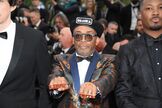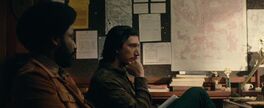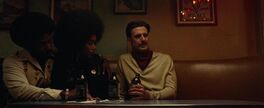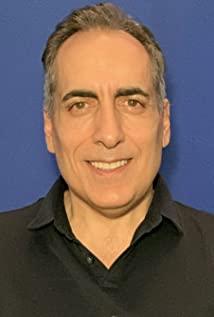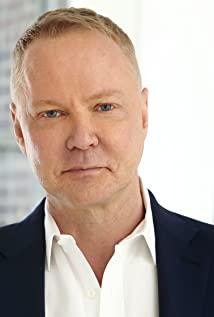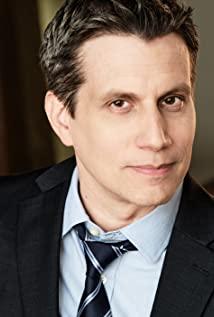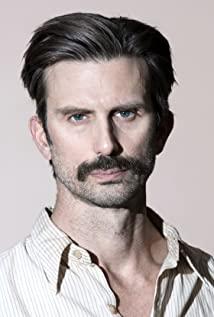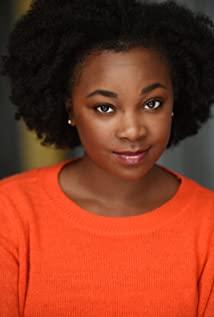What can a movie time be used for? Take a nap, eat dinner, or watch another movie... Anyway, it's not enough to thoroughly analyze the problem of racial discrimination in the United States, the grievances with the KKK, and the political struggle, at least for Spike Lee. Saying is not enough.
Judging from the dial telephones used by the police station in the film and David Duke, the former leader of the Ku Klux Klan, who had not retired at the time, the background of the story should be the United States in the 1970s - the era when the civil rights movement was in full swing, also In the era of the KKK's third rise, the opposition to the civil rights movement was one of the reasons for the KKK's resurgence.
From the plot point of view, the theme of this movie is more interesting than the content of the story. I thought it was a story of a black police officer pretending to be a white man to sneak into the KKK undercover, but the black guy just contacted the KKK members by phone. The one who took the risk to go undercover was a colleague who pretended to be the black guy, a Jewish policeman. So why does this story have to use black people as the protagonists? The Jewish police are all undercover, and the phone calls are also done, right? Dramatic conflict has weakened too much in this back-and-forth. Some people may say that this is a movie based on real events, but the reality may be like this. But this is not a biographical movie. If the logic of the real life situation is not suitable for being completely copied into the movie, why can't it be transformed? In the second half of the movie, the undercover identity of the Jewish police was exposed. I thought there would be a tit-for-tat conflict, but it ended up being nothing. As a drama, the plot is indeed too mediocre.
As the villain of the film, the 3K party, from the big boss David Duke to the various party members, from top to bottom, they have been portrayed as big fools, and sometimes they are quite stupid. By weakening the villain to achieve the effect of black humor, this way of expression has allowed me to see the shadow of many domestic films (there is no meaning to black domestic films, run with the top of the pot). It's understandable to have to do this to highlight the effect of comedy, but if so, why release the actual video of the 2017 Virginia racial violence at the end of the film? The playful tone of racial discrimination in the whole film once made me think that the consciousness of the black director was beyond ordinary people, but in the end, he was beaten back to the prototype. In this case, why not just choose a dark and serious perspective? It also saves such an obvious sense of separation.
Many people are quite disgusted with the political correctness that Hollywood movies have always upheld. In fact, I don’t care much about this aspect, because political correctness essentially does not affect the quality of a movie. But this film cannot be considered a masterpiece in terms of its creative level, and the so-called political correctness of expression is really not very advanced.
In addition to satirizing the KKK, the entire film is meant to satirize Trump. In addition to introducing acrylic Baldwin, a tenth-level player who imitated Trump, at the beginning, he used "The Birth of a Nation" to disgust the current president. The film casts David Duke as Trump's avatar, inexplicably shouting "America first" and "Make America Great Again" from the mouths of KKK members. In the documentary video at the end of the film, Trump himself appeared on the scene... The director's intentions were too obvious, and he almost picked up a microphone with CNN written on it and stuffed it into Trump's mouth.
The use of the parallel montage in the film is also quite controversial. Compared with the mediocreness of the whole film, I think this part is the only bright spot of the film. On one side, the KKK members watching "The Birth of a Nation" shouted "White Power", while the black people participating in the rally shouted "Black Power". The intersection of parallel time and space forms a natural irony, but it still cannot save the mediocrity of the film.
The biggest disappointment is that Spike Lee’s cognition of racial issues in the United States is still stuck in the state of the 1960s and 1970s when black compatriots have to stand up and oppose the oppression of white supremacy; he also believes that the current stage of racial discrimination in the United States The main contradiction is between the lowly blacks who live in hardship and the privileged and superior whites. Fifty or sixty years have passed since the Civil Rights Movement today, and the complexity and subtlety of racial issues have long changed, and racial discrimination is no longer as simple as oppression and anti-oppression. The historical legacy of institutional discrimination cannot be explained by simply praising the reforms within the police system. This movie, like its setting, should be set in the 1970s, not today in the 21st century.
Regarding racial issues, from the perspective of "people", I fully support and advocate equality for all - all people, regardless of skin color, nationality, gender, age, beauty, ugliness and sexual orientation, should have the same rights, but only if they do not involve Politics, economics, and culture are areas that cannot be maintained by human nature alone. For example, I fully agree that blacks deserve the same respect as whites, whether it's when they take the bus, or when they stay in a hotel... But should complaints of poverty and more political resources be covered as well?" Against Racial Discrimination", I can't take it for granted.
Tell me about your experience. A few months ago at the Montparnass train station in Paris, a French woman protested to the ticket inspector at the entry gate that she was discriminated against - why did they smile politely at the two of us Chinese, and eagerly help us scan the code to open the gate, but Stop her from getting on the train - of course because we bought tickets and she didn't. It's absurd and a little ridiculous. The Chinese who have suffered more than one experience of being discriminated against in France will one day be accused of being discriminated against by the French, but they can't say what they feel for a while.
But from this I had to think, what does the word "discrimination" really mean? When does it appear? How can a person tell if they have been discriminated against? These questions are actually difficult to answer. First of all, we must find out whether the "discrimination" comes from the outside or our own heart-compared to mocking the color of black people and restricting the freedom of movement of black people in public... These external obvious discriminations are more serious The purpose is to attribute all poverty, low quality of life, lack of ability... to "self-discrimination" of racial discrimination; the most serious thing is to alleviate the negative morality, humanity and public opinion brought about by this "self-discrimination" influence, and make substantial compromises of last resort.
With the development of the civil rights movement around the world today, the theme of racial discrimination has already entered a new stage. The main contradiction at this stage is no longer just the people of color who are discriminated against and the white people who discriminate against them. In Europe, people talk about "racial discrimination" and get disgusted, and joke that who dares to be racially discriminated now, and die? I have also seen such news. In order to ensure the proportion of black employees, a company in the United States rejected white girls who came for interviews. The topic of "discrimination" has already become more acute and sensitive in a delicate balance. When the subject of "discrimination" is always wary of being discriminated against; when potential "discriminatory" subjects are cautious in their words and deeds, they are always wary of their own words. Accidentally charged with "racial discrimination"... Isn't this another more stream-of-consciousness discrimination?
The wheel of history turns forward, and it is the result of how many things people have run over. History is always cruel, and human nature is just a corner of self-comfort in the cruel truth. Winning and defeating, and then writing history in the name of the victors—this is probably the fate of mankind. Today's racial problems are the result of Europeans bringing blacks to the American continent 500 years ago, when Martin Luther King was assassinated—perhaps earlier, when the first black slaves who rebelled against fate failed time, it was already doomed. But if fate is like this, do people really surrender to fate? Can't escape but can't escape, isn't man always struggling with fate, with history, with himself?
Back to this movie. No matter whether it is politics or political correctness, there is no insurmountable standard. It is good that a political movie can discuss and cause more thinking. But not to mention these, just as a movie, its quality must first be measured in the category of movies, otherwise what is the significance and value of it as a movie? Not to mention, the film's political expression is naive and not profound, and its understanding of racial discrimination is even more conservative and outdated.
Just as "The Birth of a Nation" was famous in film history because of Griffith and the parallel montage, "Gone with the Wind" became a classic because of the original book and Vivien Leigh. Are they racist? Yes, and quite a few; can you criticize them? Yes, but not necessary. "You're not black, you can't understand their anger at these scenes," one might say. That's true, but as a Chinese, isn't it more cruel and ironic than accusing Duras of racial discrimination against Chinese people in "The Lover" -- and the discrimination of poor white girls against rich Chinese young masters -- I am more Willing to say that I don't quite accept Duras' self-stream-of-consciousness writing style.
Art matters are left to art to discuss. If an artist is not good at expressing art, can we expect him to be able to discuss politics well?
View more about BlacKkKlansman reviews



